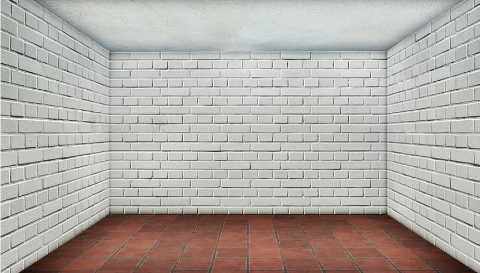Legal Business Risk & Compliance — KPMG Law a Go, Move Over Says Another Accounting Firm, Litigation Funding Updates
Posted on
“KPMG Wins Approval to Launch First US Law Firm for Big Four” —
- “KPMG gained approval to practice law in Arizona, making it the first Big Four accounting, tax, and consulting company set to operate a law firm in the US.”
- “The Arizona Supreme Court today [2/27] granted KPMG a license to operate a so-called alternative business structure. KPMG Law US will be an independent law firm operated as a wholly-owned subsidiary of the company.”
- “The law firm will provide legal services that include integrating legal contracts and tech systems after corporate mergers, KPMG has said. KPMG’s tech capabilities, scale, and pricing structure give it an advantage over traditional law firms, Stuart Bedford, the company’s global head of legal services said in an interview earlier this month.”
- “‘KPMG Law US is uniquely positioned to transform the delivery of legal services,’ Rema Serafi, KPMG’s vice chair for tax, said in a statement. ’By combining cutting-edge artificial intelligence and advanced technology solutions with legal services, we are proud to be a first mover with this capability and to offer the most holistic range of tech-enabled services in the marketplace for our clients’ evolving needs.'”
- “The move follows years of Big Four expansion into legal services in other markets, such as the UK and Australia. Professional regulations for US lawyers have largely barred non-lawyers from owning law firms. The Arizona ABS program created an exception in 2021, hoping new law firm models would spur better access to costly lawyer advice. Mass tort firms have taken to Arizona’s alternative business structures and use them for lead generation and advertisement nationally.”
- “KPMG Law US can practice law in the state on the condition that it refrains from performing legal services for any of KPMG’s audit clients, the court said in the Thursday order. The restrictions have broader application beyond US securities law that prohibit accounting firms from performing legal services for its US clients.”
- “The initiative faces several questions, including to what extent, or how, KPMG Law will provide services in other states. Law firms tracking new competition will be watching to see what types of legal matters clients hire KPMG to handle.”
- “‘One question is are they engaged in the unauthorized practice of law in other states in which they are giving advice because that’s where the clients are located,’ said legal ethics professor Bruce Green, who teaches at Fordham Law School.”
“Move Over KPMG, This Accounting Firm Has a Vision for Providing Legal Services Nationwide” —
- “When Atlanta-based accounting and business advisory firm Aprio announced a merger with an Arizona business law boutique earlier this month, leaders from the new entity—dubbed Aprio Legal—indicated that they aimed to deliver legal services to clients beyond the Grand Canyon State.”
- “Representatives from both Aprio, with 25 U.S. offices but no presence in Arizona, and Radix Law, with 15 attorneys in Scottsdale, emphasize they will use co-counsel relationships to serve clients around the country. But some observers, however, question whether the traditional co-counsel relationship is being stretched when used in conjunction with a firm that is, in reality, supposed to only be offering legal services in Arizona under an intrastate Alternative Business Structure license.”
- “Both firms were already previously approved to operate ABS law firms – Radix in 2021, the year the Arizona program began, and Aprio in 2024 – but firm leaders say the joint venture could lead to better servicing of Arizona legal clients and could also potentially open up the opportunity for cross-border legal work.”
- “‘We believe we are pioneering a new, holistic approach that re-imagines the client experience,’ Kopelman said in written comments. ‘Ultimately, working alongside the Arizona Supreme Court’s Alternative Business Structure Program, we hope our model inspires similar collaborations across the U.S. and helps reshape how legal services are delivered. As we look forward, we will work closely with the ABS program to shape any expansion beyond Arizona.'”
- “Kopelman and Kveisc did not say which law firms outside of Arizona could serve as possible opportunities for co-counsel relationships.”
Crossing State Lines” - “‘Only Arizona lawyers can practice law in, and be employed in, an Arizona ABS, at least in theory,’ said Lynda Shely, an Arizona ethics lawyer.”
- “Because most other states have ethics rules that prohibit the formation of ABS law firms, they would likely frown upon an Arizona ABS attempting to open an office in states outside of Arizona, Shely said.”
- “Aprio and Radix, however, do not seem overly concerned, given their focus on delivering services outside of Arizona through the use of co-counsel relationships, which is something that is generally already permitted in other circumstances.”
- “‘None of us are aware of any jurisdiction that has that type of limitation,’ Lucian Pera, a partner at Adams and Reese who focuses on legal ethics, said about co-counsel relationships. Arizona lawyers are already permitted to enter into co-counsel relationships with attorneys in other states, Pera said, and the only limitation on this would be if a court were to issue rules preventing such cross-border relationships.”
- “Another way the Aprio Legal Arizona ABS lawyers could partner with outside counsel is to operate as a multi-jurisdictional practice, according to Pera. In 2002, he said, the ABA issued a rule that has since been adopted by around 40 states that would permit some temporary practice of law by lawyers in different states.”
- “Under this setup, lawyers in one state—Arizona, in this example—could become associated with a local attorney, get temporarily admitted to practice law in a state other than their own, and then handle certain legal work outside of their home state, including arbitration, mediation and other matters that are ‘reasonably related to your practice back home,’ Pera said.”
- “Pera also said this type of cross-border legal work can also be done through the use of legal staffing companies. Essentially, there are already numerous ways lawyers can handle certain legal matters in states in which they’re not licensed. ‘I don’t know what Aprio has got in mind, but those are some tools they can use,’ Pera said. ‘They would be using the same tools that my law firm and I use to do the same thing.'”
- “Pera said as far as he knows, there do not currently appear to be any restrictions on the use of these various methods in situations where the firm seeking to develop a co-counsel relationship is structured as an ABS versus a traditional law firm.”
- “Pera called Kvesic, of Radix, ‘a really fine, smart lawyer,’ and he acknowledged the scope and reach of Aprio, saying the joint venture will likely see success and could possibly spur other accounting firms or consultancies to get involved in the legal business.”
- “‘My feeling is the fact that someone is trying this is as important as how many clients that particular firm reaches, because it will, frankly, expand the imagination of other lawyers and accountants as to what’s possible,’ Pera said. ‘They could be the next behemoth. I think it’s as important for people to see what they’re doing, and ask the questions you’re asking.'”
- “You can pay for the dinner, but you cannot pick when, where or what we’re eating. At least that’s what a Magistrate Judge in the District of New Jersey decided last week in Harish v. Arbit, No. CV 21-11088-EP-AME, 2025 WL 354434 (D.N.J. Jan. 31, 2025), a patent dispute that resulted in the disqualification of two law firms from representing two defendants because the defense was funded, at least in part, by a non-party with an interest in the patent.”
- “Plaintiff maintained that defense counsel violated N. J. Rule of Professional Conduct 1.8(f) when they represented defendants and a non-party payer. The Court held that the plaintiff, as an adversary, had standing to raise a potential conflict of interest and bring a motion to disqualify. While the Court noted that the Third Circuit had not ruled on the issue directly, ‘this District has held that ‘[a]dversaries, as well as former clients, may raise conflict of interest concerns.’'”
- “The Court found that the issues were governed by the New Jersey Supreme Court’s opinion in In re State Grand Jury Investigation, 200 N.J. 481 (2009) because a non-party was paying for the defense. The Court rejected defendants’ argument that Grand Jury only applied when evaluating whether an attorney may accept payment from a nonclient and not when an attorney is jointly representing multiple clients with a common interest.”
- “Under the Grand Jury test, an attorney may represent a client, accepting payment directly or indirectly from a non-party, only if each of the following six factors is satisfied:
-
- There is informed consent by the client.”
- Non-party payer may not direct, regulate or interfere with the attorney’s professional judgment in representing the client.”
- There may not be any current attorney-client relationship between the attorney and non-party payer.”
- The attorney may not communicate with the non-party payer regarding the substance of his representation of his client.”
- The non-party payer shall process and pay such invoices within the regular course of its business, consistent with manner, speed and frequency it pays its own counsel.”
- Once a non-party payer commits to pay for the representation of another, they shall not be relieved of that obligation without leave of court brought on prior written notice to the attorney and the client.”
- “Applying these factors to the facts, the Court here found that there was objective evidence from email communications between the parties that the non-party payer’s interests have ‘commandeered, or at least directed with primacy, Defense Counsel’s approach to its defense of Defendants.'”
- “The Court further stated that ‘[t]he record makes clear that [the non-party] is directing, regulating, and interfering with Defense Counsel’s professional judgment in its representation of Defendants.’ The Court found that there was clearly an attorney-client relationship between the attorneys and non-party payer because defense counsel stated they represented the non-party and were advising both the defendants and the non-party payer.”
- “The Court further noted that defense counsel continuously and regularly informed the non-party about the substance of defendants’ representation and a representative from the non-party was present and participated in a settlement conference. Finally, the Court found that Grand Jury’s sixth condition was not met because there was an indemnity clause that would release the non-party payer from its obligation to pay if legal fees surpassed a certain threshold.”
- “This case is an important decision on the impact and contours of what litigation funders can and cannot do. It serves as a roadmap for representation letters, waivers and communications with non-parties whenever a separate entity is involved in paying for litigation, and a cautionary tale for joint representation.”
“Russian Oligarch Wants Court Nemesis’ Litigation Funding Details” —
- “A sanctioned Russian billionaire is asking a Florida court for details about a Miami litigation funder that bankrolled an overseas case against him.”
- “Andrey Guriev claimed in a filing on Wednesday that 777 Partners was among a group of funders financing cases filed against him by former friend Alexander Gorbachev claiming he owned 24% of Guriev’s company. 777 and subsidiary Sphinx Funding LLC paid Gorbachev’s litigation costs, after-the-event insurance and living expenses to the tune of over £11 million ($13.9 million), according to court documents.”
- “Guriev now seeks discovery from Gorbachev’s funders asking for documents relating to 777 Partners’ general funding standards and policies, an organization chart of 777, corporate meeting minutes, and documents and communication relevant to Sphinx’s agreement with Gorbachev. He also seeks to depose a representative of 777.”
- “‘Mr. Guriev hopes to discover information relevant to the identities and ultimate sources of the funds provided by the third-party funders who financed Mr. Gorbachev’s failed, frivolous, and potentially fraudulent claims, as well as the true motives and objectives in bringing those claims,’ counsel for Guriev from Boies Schiller Flexner wrote in the memorandum of law supporting the discovery application.”
- “Guriev is a founder of Russian phosphate fertilizer company PhosAgro and a close associate of Russian President Vladimir Putin, according to the UK Office of Financial Sanctions Implementation. He was sanctioned by the US Office of Foreign Assets Control in 2022 for operating within the Russian Federation economy.”
- “In 2023, Gorbachev revealed that third parties were paying his litigation expenses, with two paying direct costs for the UK proceedings. Sphinx was one of those funders and had an agreement with him since 2021. It fronted the cost of a £5 million ($6.3 million) after-the-event insurance policy and Sphinx was entitled to the higher of either £40 million ($50.7 million) or 20% of the case proceeds.”
Funders’ Role” - “Guriev applied to have the funders added as parties to the litigation. In response, Joshua Wander wrote that he is the managing partner and co-founder of 777 Partners and Sphinx is a subsidiary. Wander wrote that 777 has no entitlement or any stake in the outcome of the proceedings and never has, despite 777 paying some of the funding payments to Gorbachev.”
“The case is v. 777 PARTNERS LLC, S.D. Fla., 25-mc-20896, 2/26/25”









